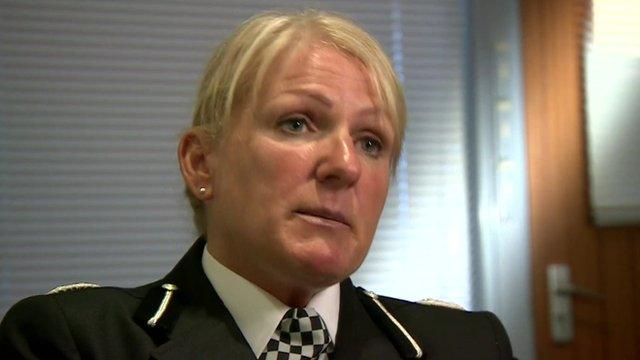150 people deemed at risk of extremism in Wales
- Published
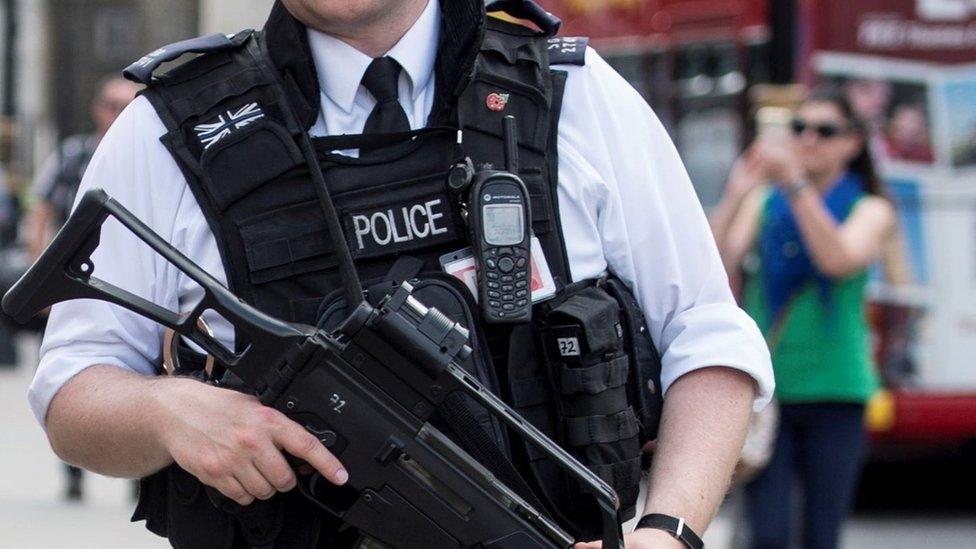
Nearly 150 people were deemed at risk of joining extremist groups in Wales over a year, new data shows.
Figures from the Home Office showed 31 people received specialist support to guide them away from extreme ideologies.
Across Wales and England, 7,631 people were referred to the UK government's Prevent programme, external between 2015-16.
UK government-backed organisations are working in Wales to discourage people from joining banned groups.
Official figures for April 2015 - March 2016 showed 148 people in Wales were deemed at risk of joining extremist groups and carrying out terrorist activities.
Forty of those were discussed at a panel to see what kind of action was required and 30 were given guidance through the Channel programme, external.
Guidance can include one-to-one mentoring with former extremists, such as former so-called Islamic State recruiters or former members of far right groups - but can also include meetings with psychologists and religious leaders.
Most of the 7,631 referrals in Wales and England came from schools, colleges and universities, where the average age of those referred was 14.
Of those, 4,997 (65%) were referred over concerns related to Islamist extremism and 759 (10%) were flagged-up over concerns related to right-wing extremism.


Advice is already given to pupils to help prevent them becoming radicalised online
What is Prevent?
It is part of the UK government's counter-terrorism strategy, known as Contest
It is designed to support people at risk of joining extremist groups and carrying out terrorist activities
It requires faith leaders, teachers, doctors and others to flag-up any suspicions to the authorities. An assessment is then made on whether action is needed
Where action is taken, an individual can be placed into the Channel programme - a support plan which may include one-to-one mentoring for an indefinite period

The referrals in Wales accounted for 2% of all referrals - the lowest of any region.
The figures showed 101 referrals were Islamist in nature, with 18 receiving Channel support, while 33 were for extreme right wing concerns, of which 13 went on to receive Channel support.
Just one person was referred by their friends and family, while 56 people were referred by the police. Twenty referrals were for people aged under 15.
The Prevent strategy has been criticised by some MPs, the National Union of Teachers and the Muslim Council of Britain, while an academic from Wales warned it was closing down debate in higher education.
Some have also argued it is counterproductive and can make Islamic students feel isolated and possibly more open to radicalisation.
- Published9 November 2017

- Published7 August 2017
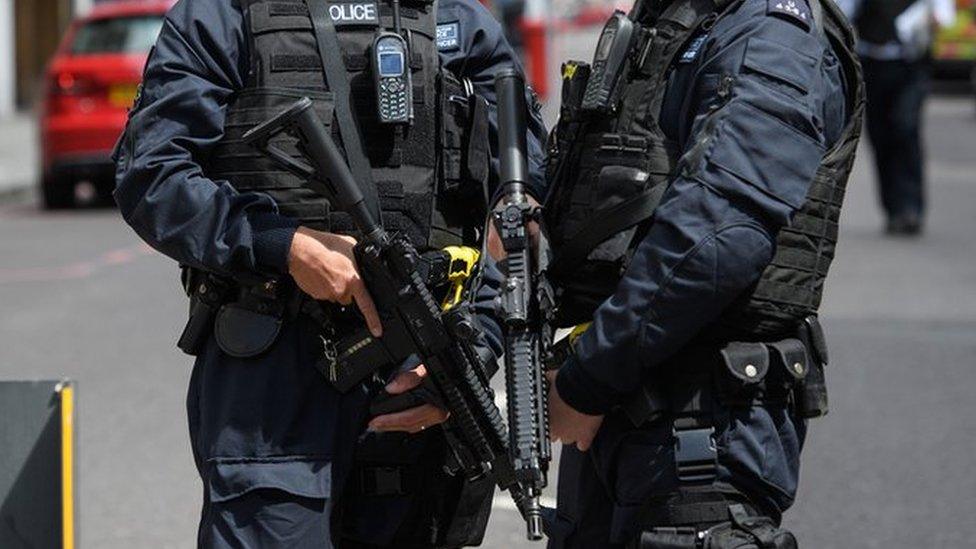
- Published30 March 2017

- Published12 March 2016
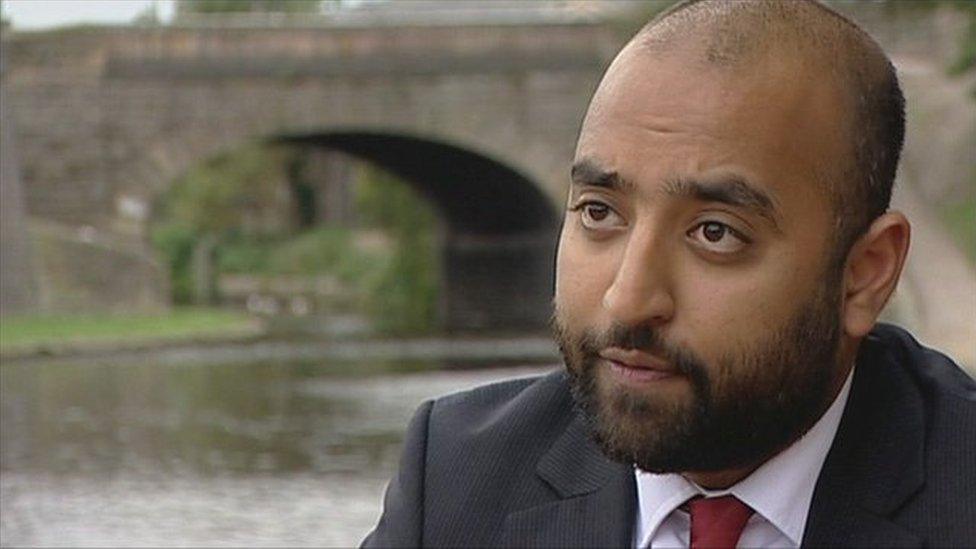
- Published31 August 2016
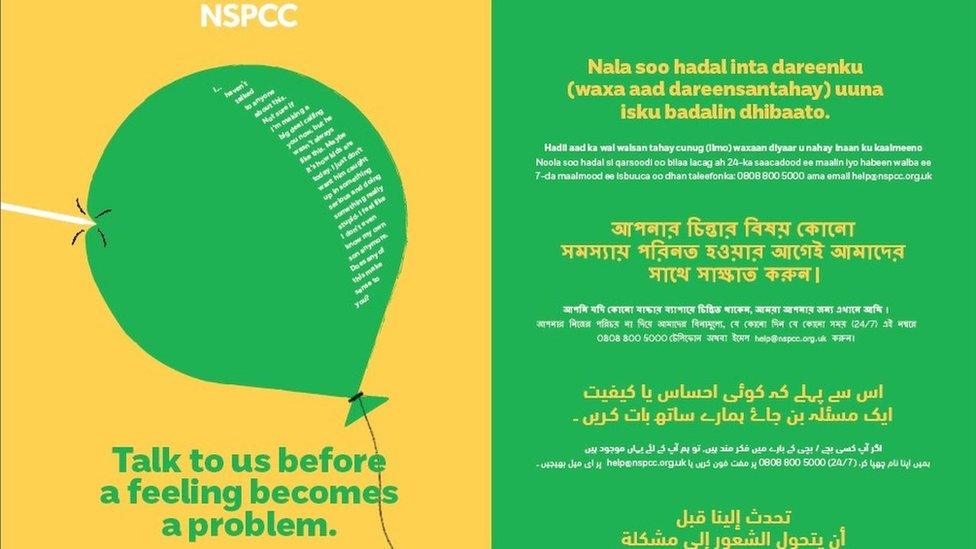
- Published12 January 2016

- Published24 November 2014
